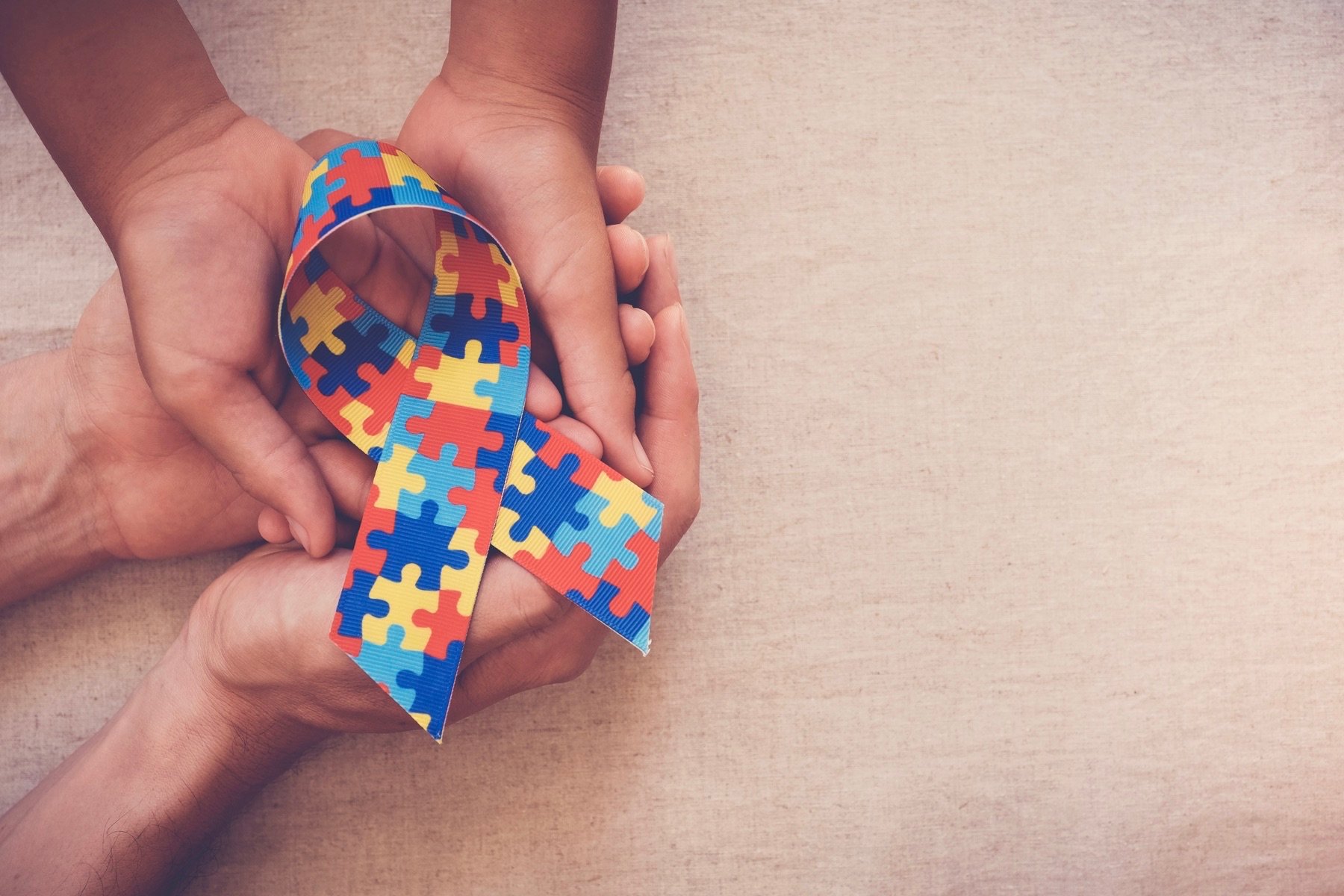Custody, Parenting Time, and Issues Involving Children with Autism
On March 23, 2023, the U.S. Government’s Center of Disease Control and Prevention (CDC) issued a new report with a finding that 1 in every 36 eight-year-old children in the United States is diagnosed with autism spectrum disorder (ASD).[1] This analysis underscores the reality that in family practice, there is a growing number of circumstances where parties who are separating or divorcing may have a child with autism.
For this reason, parents and professionals alike may have a growing need to understand and address certain issues which may possibly arise in a case involving a child with ASD.

Autism Spectrum Disorder (ASD): An overview
Autism is a pervasive developmental disorder of the brain. The exact cause is unknown, and there is no known cure. There is, however, often a huge benefit to a child from early diagnosis and intense early intervention.
Hypothetically, if there are two couples with similar lives getting divorced—with one couple having a child with autism and the other couple having a child without autism – the analysis and results of each divorce might differ on a number of issues. For this reason, parents and professionals involved in divorce litigation involving a child with autism can generally benefit from increased autism awareness—including an enhanced general understanding of autism itself, as well as a specific understanding of the child’s unique needs. Such an understanding is relevant and important because the parents and the court both generally have obligations to protect the best interests of the child. The obligation of the court is known as parens patriae jurisdiction, meaning that the family court has an affirmative duty to protect a child who cannot protect him/ herself. This is especially true in the context of protecting a developmentally disabled or challenged child, such as a child with autism.
In considering what is in the best interests of a child with autism, it is often helpful to have a familiarity with the importance of early diagnosis, early intervention, and the very frequent need to prioritize a behavioral therapy program in the child’s life. Infants and young children who are diagnosed with autism are sometimes said to suffer from infantile autism. While no two children with autism are exactly alike, the social deficits of children with this diagnosis can sometimes manifest themselves in certain fashions.

For example, some children with autism may have little or no speech. Other children who do speak might frequently parrot what they hear others say (echolalia), and/or speak in monotone with a blunt affect. Some children with autism often have great difficulty making eye contact, and may frequently engage in seemingly rigid and obsessive-compulsive behaviors, such as persistently lining up objects in a row or spinning the wheels on toy cars or other rotating objects for length or repetitive periods of time. Still other children may occasionally engage in different but equally repetitive self-stimulatory behaviors, such as spinning in circles, flapping their arms, and/or repeatedly rocking their bodies back and forth.
Some children with autism may possibly find difficulty reading or understanding people’s facial expressions , or responding to social cues and gestures. Others may appear to have little interest in other people, and for various reasons may gravitate to social isolation rather than social interaction with same-age peers. Still other children may engage in in intermittent explosive temper tantrums and potentially self-injurious behaviors, such as head-banging on walls and floors, while others may not readily appreciate or fully understand the concept of danger. For example, a child might put his or her hand on a hot stove even if he or she was burned on the same exact stove the previous day.
These are just some examples of some of the behaviors and challenges which a child with autism may possibly display. This does not mean, however, that every child with autism will have all—or any—of these behaviors. There can be many other different manifestations of the disorder as well.
There are countless treatises, books, and professional articles on the subject of autism. The more that parents, attorneys, and judges know about ASD, the more detailed an analysis of the issues in a divorce between parents of a child with autism can be for the benefit of all involved, including most importantly for the child.

Custody
In a case involving custody, it is of course important to familiarize oneself with the different types of custody in one’s state. For example, in New Jersey, there are two types of custody: residential custody—which involves where the child primarily resides—and legal custody, which involves the issue of who makes the major parental decisions on behalf of the child. In many jurisdictions, there is a public policy supporting joint legal custody, meaning that regardless of parenting schedules, and absent exigent circumstances, under joint legal custody both parents have a right to participate in major decisions regarding the child’s health, education, and general welfare.
In some cases, the parties agree to share not only legal custody but residential custody as well, and they jointly and amicably work together— through counsel or otherwise—to develop a mutually acceptable time-sharing plan where each parent receives substantial , or in some cases, equal or close to equal ) parenting time with the child. While this type of an arrangement may possibly work if the parties live relatively close to each other and can communicate and cooperate well with each other, such an arrangement might in turn be very challenging if (A) the parties live far from each other and (B) the parties do not or cannot get along with each other and cannot reasonably co-function as shared residential custodians.
When a child of separating or divorcing parents has autism or other special needs, it is generally very important to the child’s welfare for parties who are serving as joint legal custodians to be able to reasonably cooperate with each other on parenting issues which arise. There are many important decisions that may need to be made regarding a child with autism, including decisions helping to create and oversee the child’s educational program in conjunction with the school’s child study team members where applicable.
In this process, there is often an ongoing need for an unobstructed and effective parental decision-making process on critical and time-sensitive issues regarding a child with autism, , such as decisions regarding approval of therapies interventions, comparative school programs, and even possible adaptation or modification of existing programs. When parents are consistently at odds with each other, however, a child may be hurt by frequent stalemates between parents which may cripple parental decisions and ultimately a child’s progress. While some parents are able to put aside their past differences and work constructively together on these and/or other issues for the sake of the child. others, may be wholly unwilling or unable to do so.
As noted, it is important to be familiar with custody laws in an applicable state. While a state may have a custody statute setting forth general criteria which a court may or shall consider in deciding custody issues, when a custody case involves a child with autism, there may possibly be additional fact-sensitive considerations which a court might potentially find relevant and material in a particular case.
By way of example, it is possible that a court may have an interest in considering some of the following factors relative to a child’s special needs and best interests:
- Each parent’s role in obtaining the initial diagnosis of ASD, and any delay
- Each parent’s acknowledgement and acceptance of the diagnosis rather than an unreasonable denial of the condition
- Each parent’s role in obtaining early therapy
- Each parent’s ability to reinforce new learned behaviors and skills with behavioral interventions
- Each parent’s role in self-education in autism (increasing one’s knowledge; staying on forefront of educational developments for the good of the child)
- Each parent’s ability to handle emotional stress which may sometimes arise while raising the child
- The quality of the special-education services where child resides*
- Other autism-related factors
*(See Autism and Divorce: Guidelines for Family Court Practice, The Jones-Holmes Criteria, by L. Jones and D. Holmes (2009). See also ROONEY V. WALL (April 2, 2015) (special issues in divorce involving child with autism) (2014 N.J. Super Unpub. Lexis 3067 (2014))
Regarding a child with autism in the midst of the parents’ divorce, it is important to consider the value to the child of an unobstructed, mutually cooperative , respectful decision-making process between the parents themselves.

Parenting time
Absent exceptional circumstances relating to the health and safety of the parties’ child, the right of a parent to companionship with his or her child has generally been recognized as a fundamental right implicitly protected by the First, Ninth, and Fourteenth Amendments to U.S. Constitution. However, the welfare of the child is often a highly relevant consideration for a court in deciding issues of parenting time as well.
There are many different types of parenting schedules. One of the more minimum arrangements one may sometimes see is when the non-custodial parent has time with the child at least every other weekend, a weeknight dinner, and alternating holidays with extended holiday and summer vacation time schedules, however, may certainly vary from case to case, depending on various fact-sensitive factors, including but not limited to parental employment obligations and proximity of the parents’ homes, etc. Therefore, an involved non-custodial parent may either by agreement or court order)have substantially more parenting time than an “every other weekend schedule,” depending on the circumstances. Some parties even agree on 50/50 parenting time, although such an arrangement may work more successfully in some cases than others for various fact-sensitive reasons.
When there is a separation or divorce between parents of a child who has been diagnosed with autism and who is undergoing therapy or special education services, it is generally important that any proposed parenting schedule give due consideration to any applicable after-school therapy schedule which may exist (behavioral therapy, speech therapy, occupational therapy, etc.), and the ability or to modify schedules based upon the therapist’s availability.
For example, a child might be participating in a year-round extended school year program for special education (known as an “ESY” schedule) in order to prevent regressive behaviors during an extended summer vacation with no structured support. In such a case, the removal of the child from the program for three or four weeks to accommodate summer vacation travel with either parent might possibly have a detrimental effect in some cases on the child’s behavioral progress. Careful consideration and consultation with educational professionals may be helpful in addressing such an issue to see if the child can take a short break from therapy for vacation purposes, and if so, whether the vacationing parent can assume reasonable educational responsibilities during the vacation itself.
Similarly, if the child is involved in an intense behavioral intervention program, such a program may require ongoing behavioral reinforcements from each parent to be truly effective. In such a case, it is often critical that both divorced parents have appropriate education and training in behavioral intervention and reinforcement; other members of each parent’s respective household (second spouses, etc.) may benefit from training as well. Unless there is persuasive reason to the contrary, both parties may wish to follow the valid and reasonable educational plans established by the child’s professional therapists, and both parents may strive to be consistent with each other in reinforcing therapy goals and helping the child generalize learned skills in each parent’s separate home.
If either parent or a member in that parent’s household (new spouse, etc.) refuses or fails to have an understanding of behavioral modification and reinforcement for a child, then this may potentially cause setbacks to the child’s progress. A parent’s lack of understanding of autism can potentially lead to serious problems if the child hypothetically has a behavioral meltdown, or engages in other challenging episodic behaviors. Logically, a court exercising parens patriae jurisdiction can order that parenting time (or even custody) be conditioned upon the parent’s ongoing compliance with the child’s therapeutic needs, including ongoing parental training and education.
As noted, parents generally have fundamental constitutional rights. Yet, in a court of equity, a child’s best interests and general welfare are also paramount concerns for consideration. Against this backdrop, cooperative, divorcing parents of a child with autism may constructively attempt to creatively arrange a parenting schedule where each parent potentially spends significant quality time with the child, without unreasonably interfering with scheduled therapies, and while proactively continuing to learn and educate themselves as much as possible about autism spectrum disorder.
Additionally, family courts must generally increase awareness of autism-related issues as well. With the increasing rates of both autism and divorce, judges are constantly facing new cases and issues involving families of children with autism. A function of the family court is to treat both parents fairly, while safeguarding the needs and best interests of the child with autism at the same time. Through increased autism awareness and education , courts can potentially increase their abilities to assist children on the spectrum under parens patriae jurisdiction, and can strive to render decisions as consistent as possible with the child’s reasonable needs.
What is an individualized education plan (IEP)?
An IEP is an individualized education plan, generally created with input from the student’s Child Study Team as well as participating parents and possibly others involved in the child’s life. The Individuals with Disabilities Education Act (IDEA) is important federal legislation which gives rise to the creation of IEP plans for children with autism and/or other developmental disabilities.
Generally, each IEP plan must be uniquely designed and tailored to appropriately fit each child’s needs. While sometimes overlooked in the IEP process, an underlying goal and purpose of any IEP, when possible, is to prepare students for further education, employment and independent living. See 300 C.F.R. 300.1. Hence, in preparing a child with special needs for the possibility of future employment and independent living, the focus must often logically focus on a child’s social deficits and challenges as well as on purely academic ones.
34 C.F.R. 300.320(a)(4), states that, when possible, an IEP is to be designed with a goal to enable the child to not only advance appropriately toward attaining annual goals, and to be involved in and make progress in the general education curriculum, but also to potentially participate in extracurricular and other nonacademic activities, with other children. Accordingly, in creating an appropriate IEP plan, participants may consider and focus not only on the student’s academic needs, but on non-academic/social needs as well.
Children with autism: Summary of key points
When parents of a child with autism are separating or divorcing, some key points for discussion with lawyers, mediators, and others may potentially include the following:
- Is there a diagnosis, and if so, what is the child’s present level of functioning on the spectrum?
- Is there a parental agreement on the plan of intervention?
- How do the child’s needs relate to custody and parenting plans?
- What is the ongoing role of each parent following divorce (generalization)?
- Are there additional, autism-related expenses that may impact support and other financial arrangements?
- Are there any related third-party family issues (sibling issues, stepparent issues, etc.)?
- When applicable, are the parents in agreement with each other in issues regarding the child’s IEP plan?

Each case may of course present different or additional issues, depending on the specific facts. Every separation or divorce is fact sensitive, and the issues presented in this discussion are examples, and are not all-inclusive, of matters which may arise in a separation or divorce involving a child with ASD.
As a final point, some people ask whether to refer to a child with ASD as a “child with autism”, or alternatively, as an “autistic child” or a child “on the autism spectrum.” Different parents have different personal preferences on whether to use any of these terms, so there is no “official” correct or incorrect answer. Some parents may have a preference, while others may be fine using any or all of these terms interchangeably. As a matter of familial and cultural sensitivity, an attorney, mediator or other professional involved with the family may wish to simply ask parents if they have a particular preference and proceed accordingly.
Author’s Disclaimer: This article is provided for educational and informational purposes only and is not intended to serve as legal advice for any person regarding their specific case. If a person has any legal questions about their specific case, they should consult with a qualified attorney of their choice as soon as possible.
[1] See CDC Full report: Community Report Autism 2023(https://www.cdc.gov/ncbddd/autism/pdf/ADDM-Community-Report-SY2020-h.pdf) ; CDC Official Fact Summary (https://www.cdc.gov/ncbddd/autism/pdf/2023-ADDM-Factsheet_508.pdf); see also Autism Society Official Release(3/23/23) ( https://autismsociety.org/press-release-the-autism-society-of-america-kicks-off-autism-acceptance-month-with-a-reminder-acceptance-happens-every-day/)
